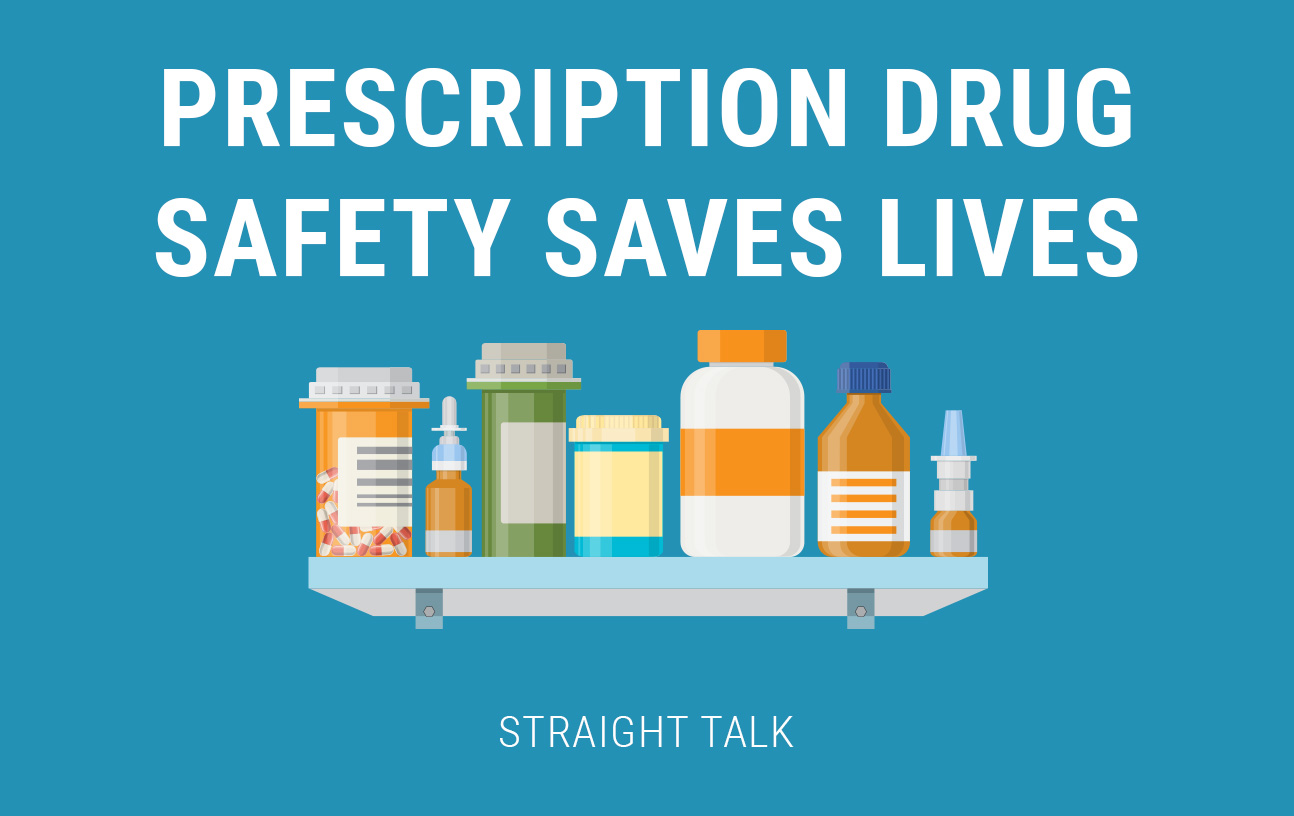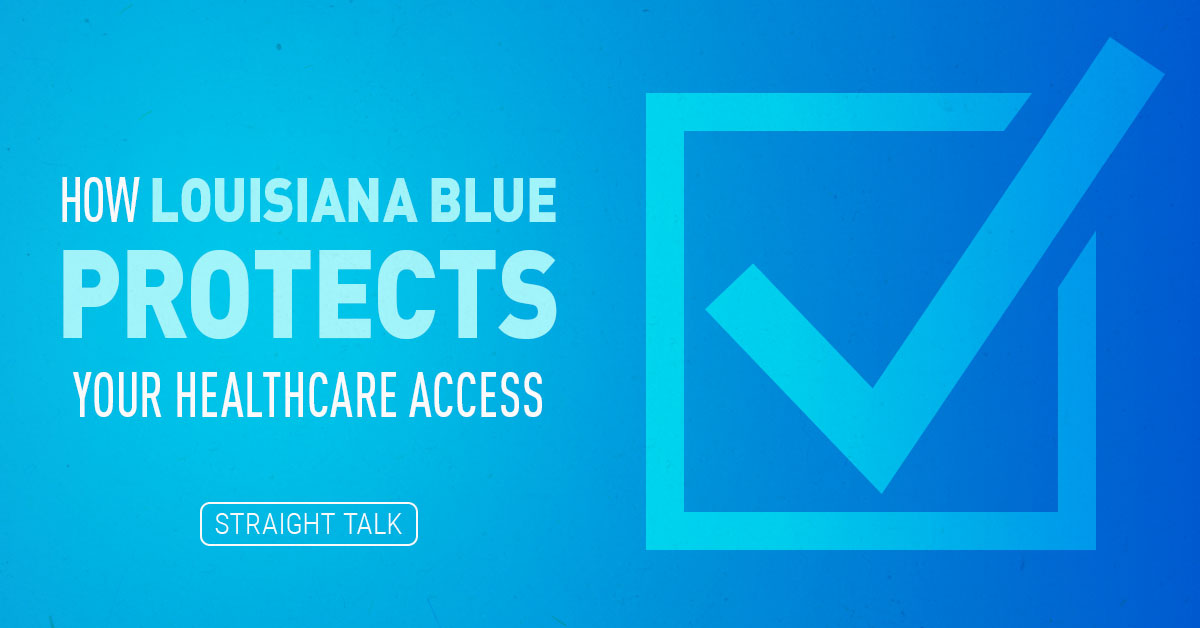Note: This week, Mike is letting members of Blue Cross and Blue Shield of Louisiana’s Clinical Services team give you Straight Talk on how the national opioid epidemic is affecting Louisiana, and what we are doing to help everyone lower their risks and prevent prescription drug abuse.
By Dr. Deirdre Barfield, senior medical director and Brice Mohundro, clinical pharmacist
If you’ve followed the news at any point in the past year, you’ve probably heard that America is in the midst of an opioid epidemic. According to a recent report from the U.S. Centers for Disease Control and Prevention, there has been an alarming increase in drug overdose deaths over the past two years, driven primarily by opioid use.
Almost half of all opioid overdose deaths happen to someone who is taking these drugs by prescription for pain relief – drugs like OxyContin, Vicodin, Percocet and morphine. Compounding this problem, many opioid users begin by taking prescription pain medication and progress to taking powerful street drugs like heroin, which are very dangerous.
While opioid abuse is a national problem, it’s particularly acute here in Louisiana. We have the sixth-highest opioid prescription rate per capita, making this state one of only eight that has more opioid prescriptions dispensed in a year than they have residents.1
Think about that – Louisiana has more opioid prescriptions than we have people living here. You can see why those numbers are concerning.
Louisiana’s drug overdose rate is also higher than the national average. For the past few years, more than 700 Louisianians have died from opioid overdoses each year. In fact, more than 800 Louisiana residents died from overdoses of both prescription and illicit opioids in 2015 alone.2
Blue Cross’ mission is to improve the health and lives of Louisianians. Given the public health threat we face today from the opioid epidemic, we want to take steps that will help our residents lower their risks of abuse disorders, overdose and death.
Providing Safe Disposal Options
Often, when someone has a surgery or dental procedure, doctors will prescribe medication for the patient to keep handy and take if he/she has pain or discomfort. The problem is that once the pain goes away, those pills often sit forgotten in medicine cabinets, where they can easily be stolen or fall into the wrong hands.
Giving patients a safe way to get rid of unused or expired pain medication can prevent abuse, misuse or theft, especially since opioid addiction begins many times with someone taking those drugs by prescription.
Blue Cross staff members have partnered with the National Association of Drug Diversion Investigators for several years now, to get secure drug take-back boxes installed in communities around the state. With the support of the Louisiana Attorney General’s office and local law enforcement agencies in parishes across Louisiana, along with funding from our Community Relations division, we’ve been able to increase access to these boxes for more state residents.
Drug take-back boxes are available year-round, and turn-in is anonymous; no questions asked. Because these boxes are housed within law enforcement agencies, they are monitored around the clock to prevent theft, and the contents are routinely gathered and properly destroyed.
We encourage everyone to take advantage of these boxes – you never know when unused pills in your home could be a temptation to friends, family or other loved ones. When you finish taking a drug, if you have any pills left over, get rid of them safely so they aren’t stolen or misused.
You can see a map of drug take-back boxes and locations at www.bcbsla.com/safedrugdrop.
Revised Opioid Drug Coverage Policy
Our customers and network doctors are learning more about Blue Cross’ forthcoming revised opioid policy, which takes effect Jan. 1, 2018, or as plans renew. Our policy aims to decrease the amount of opioids in the community and minimize the number of patients who become chronic opioid users, while still meeting the needs of our members who need treatment for pain.
The policy will require prior authorization for new short-acting opioid prescriptions that are written for more than seven days, or if the members fill a combined 21-day supply within 60-days. The policy will also require prior authorization for new long-acting opioid prescriptions if the patient was treated with a short-acting opioid within a certain timeframe.
We will make exceptions for our members who are taking these drugs because they have cancer or are receiving end-of-life care. We may make exceptions or use adjusted limitations for members who were already taking these drugs, if they meet certain criteria.
You can learn more about our coverage policies for opioids and other drugs at www.bcbsla.com/covereddrugs under Specific Drug Coverage Requirements.
What You Can Do
There are several steps all of us can take to practice prescription drug safety and lower our risks. First, always follow your doctor’s or pharmacist’s directions when you are taking a prescription drug. Talk to your doctor or pharmacist if you have concerns about any possible side effects of a drug, including addiction.
You should never take a drug that was prescribed for someone else or share your prescribed drugs with others – even if they have similar medical conditions, are related to you, etc.
Finally, use the secure drug take-back boxes we mentioned to get rid of leftover prescription medication. That’s safer than keeping it lying around the house.
If you want to learn more about the opioid epidemic, you can go to www.cdc.gov/drugoverdose or www.EndtheEpidemicLA.org.
We know the headlines are scary, but we can all work together and do our part to help Louisianians avoid the devastating effects of overuse and abuse of opioid drugs.
Next week, we’ll be back with a podcast about what Blue Cross is doing to address the opioid epidemic in our state.
References:
1 http://www.wwltv.com/news/health/louisiana‐has‐more‐opiod‐prescriptions‐than‐residents/328637722 Accessed Sept. 25, 2017.
2 https://www.cdc.gov/nchs/pressroom/sosmap/drug_poisoning_mortality/drug_poisoning.htm. Accessed Sept. 25, 2017.





Leave a Reply